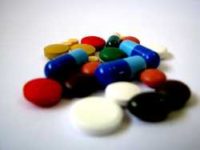04 Oct Adulterated Proprietary Chinese Medicines Pose Serious Health Hazards
 MedicalResearch.com Interview with:
MedicalResearch.com Interview with:
Tony Wing Lai Mak , MBChB, MBA, FRCPath, FRCPA, FHKCPath, FHKAM(Path
Hospital Authority Toxicology Reference Laboratory
Princess Margaret Hospital, Hong Kong
MedicalResearch.com: What is the background for this study? What are the main findings?
Response: Proprietary Chinese medicines (pCMs) and health products are generally believed to be natural and safe. However, the safety of pCMs and health products has been compromised by the illicit practice of adulteration with undeclared drugs. Such adulteration can have serious and even fatal consequences. Previous reports of pCM and health product adulteration were mainly routine surveillance data or case reports/series with a small number of affected patients.
The present study in Hong Kong, to our knowledge, is the largest case series that reports an overview of the use of various adulterated Proprietary Chinese medicine and health products and the resulting adverse effects. From 2005 to 2015, we have identified 404 cases involving the use of 487 adulterated pCMs or health products with a total of 1234 adulterants detected. The adulterants consisted of approved drugs, banned drugs, drug analogues and animal thyroid tissue.
The six most common categories of adulterants detected were nonsteroidal ant-inflammatory drugs (18%), anorectics (15%), corticosteroids (14%), diuretics and laxatives (11%), oral antidiabetic agents (10%), and erectile dysfunction drugs (6%). Sibutramine, an anorectic that has been withdrawn from the market owing to its association with increased cardiovascular events and strokes, was the most common adulterant identified. A significant proportion of patients (65.1%) had adverse effects that were attributable to these illicit products, including 14 severe and two fatal cases. These illicit Proprietary Chinese medicine and health products pose severe health hazards to the public.
MedicalResearch.com: What should clinicians and patients take away from your report?
Response: Our data have shown the danger and toxicity of adulterated Proprietary Chinese medicines or health products that can be obtained from various easily accessible sources, including internet trade. Readers should be aware of the risk of adulteration in these products and the associated potentially fatal adverse effects, and should not consume Proprietary Chinese medicines and health products from dubious sources. Frontline clinicians should have a high index of suspicion.
MedicalResearch.com: What recommendations do you have for future research as a result of this study?
Response: Future research may focus on the study of prevalence of such adulterated products from various sources, including internet trade, in different areas.
No disclosures:
MedicalResearch.com: Thank you for your contribution to the MedicalResearch.com community.
Citation: Chor Kwan Ching, Sammy Pak Lam Chen, Hencher Han Chih Lee, Ying Hoo Lam, Sau Wah Ng, Mo Lung Chen, Magdalene Huen Yin Tang, Suzanne Suk San Chan, Candy Wai Yan Ng, Jana Wing Lan Cheung, Tina Yee Ching Chan, Nike Kwai Cheung Lau, Yeow Kuan Chong, Tony Wing Lai Mak. Adulteration of Proprietary Chinese Medicines and Health Products with Undeclared Drugs: Experience of a Tertiary Toxicology Laboratory in Hong Kong. British Journal of Clinical Pharmacology, 2017; DOI: 1111/bcp.13420
Note: Content is Not intended as medical advice. Please consult your health care provider regarding your specific medical condition and questions.
[wysija_form id=”1″]
Last Updated on October 4, 2017 by Marie Benz MD FAAD
